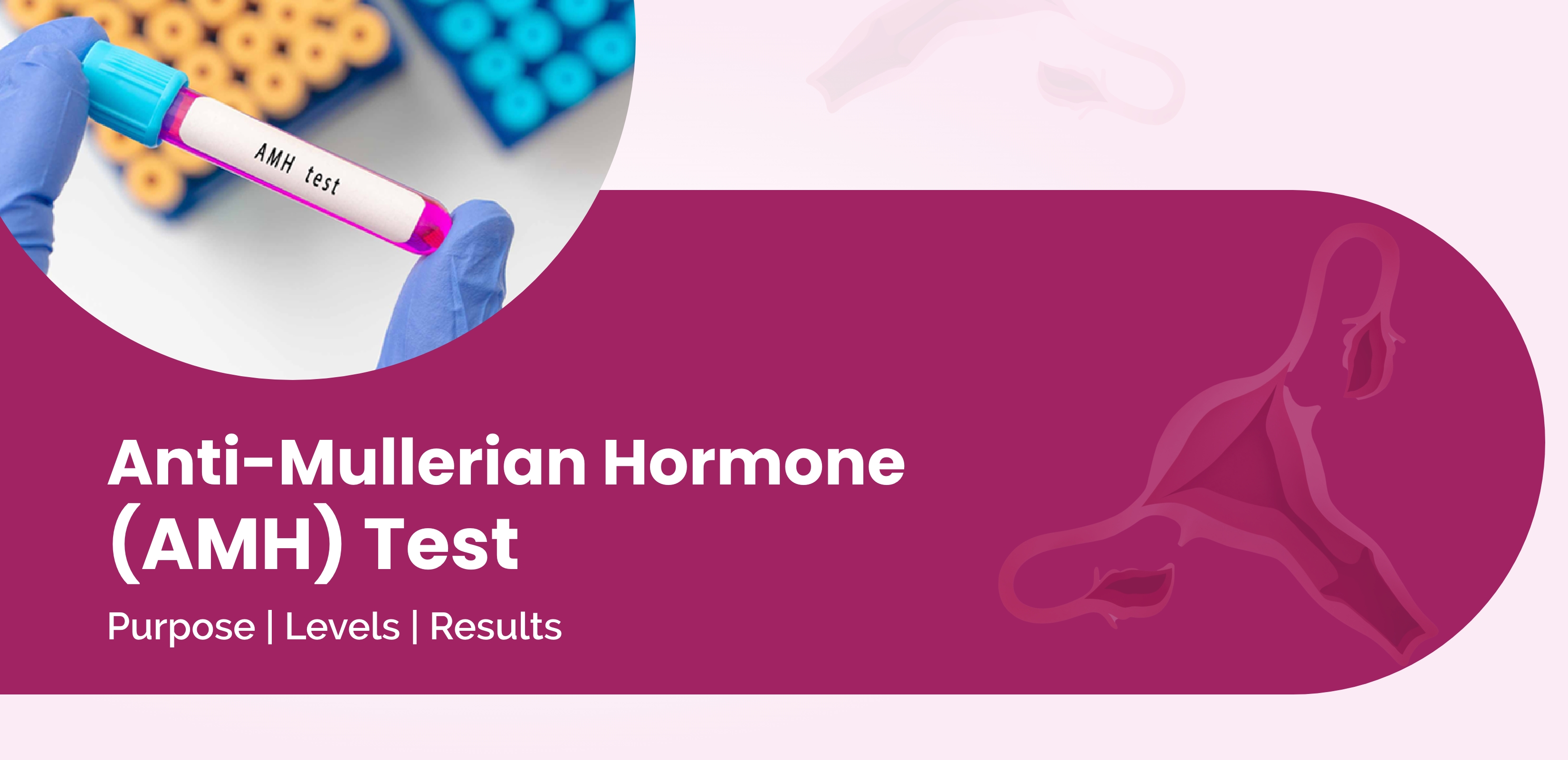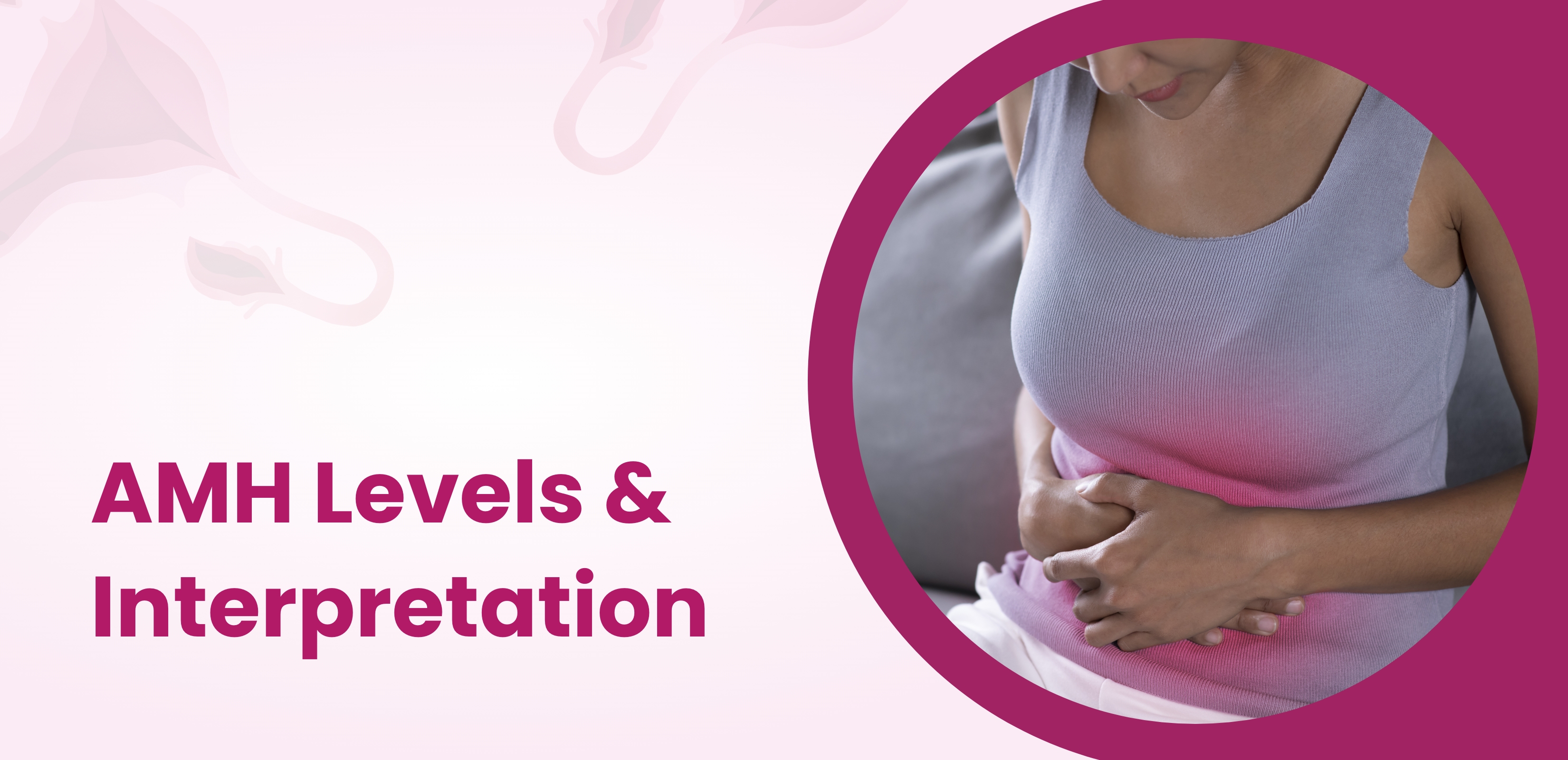
The Anti-Mullerian Hormone (AMH) Test is a blood test that measures the levels of AMH in a person's blood. AMH is a hormone that is produced by the ovaries in women and testes in men. This hormone plays a crucial role in reproductive health, in the development of sex organs and the production of eggs in women.
The AMH test has become an essential tool for assessing fertility in women. Especially for those who are planning to undergo fertility treatment. In this article, we will discuss the purpose of the anti mullerian hormone test, what the results mean, and how it can help women in their reproductive health journey.
There are various reasons as to why the Anti Mullerian Hormone test is necessary. Some of them are explained below.
The Anti Mullerian Hormone test can be used to determine if a woman has a lower than average fertility potential. This is important because fertility issues can cause problems when trying to conceive, and early detection can help women make informed decisions about their reproductive health.
The anti mullerian hormone test measures the level of AMH in a woman's blood, which can provide information about the number of eggs remaining in the ovaries. This information can help doctors predict a woman's chances of becoming pregnant, and may influence decisions about fertility treatments.
The Anti mullerian hormone test can be used to monitor the response to fertility treatments, such as in vitro fertilisation (IVF). By measuring AMH levels before and during treatment, doctors can adjust the treatment plan if necessary and improve the chances of success.
PCOS is a condition that can affect a woman's fertility, and is characterised by hormonal imbalances and the presence of cysts on the ovaries. The AMH test procedure can be used as part of the diagnostic process, as women with PCOS typically have higher than average AMH levels.

Normal AMH levels for different age groups refer to the expected range of AMH levels in women of different ages. Anti Mullerian Hormone levels naturally decrease as a woman ages, and a lower level of AMH can indicate a lower ovarian reserve and fewer remaining eggs.
High or low AMH levels can indicate different issues related to reproductive health. High levels may be a sign of polycystic ovary syndrome (PCOS), while low levels may indicate diminished ovarian reserve, early menopause, or other fertility issues.
Factors that can affect AMH levels include age, as Anti Mullerian Hormone levels naturally decline with age, and medical conditions such as PCOS and autoimmune disorders. Certain medications, such as hormonal birth control, can also affect AMH levels.
Overall, understanding normal AMH levels for different age groups, what high or low levels can indicate, and the factors that affect AMH levels can help healthcare providers diagnose and monitor reproductive health issues in women.
AMH test results can provide important information about a woman's fertility status and potential to conceive. The normal AMH levels can vary depending on age and other factors, and understanding these levels is crucial for interpreting the results. High or low AMH normal range female can indicate different fertility issues and help guide decisions about fertility treatments.
Factors such as age and certain medical conditions can affect AMH levels. For example, AMH levels generally decrease with age as a woman's ovarian reserve declines. Medical conditions such as polycystic ovary syndrome (PCOS) can also affect AMH levels. Understanding the factors that affect AMH levels can help healthcare providers interpret the results accurately and provide appropriate recommendations for patients.
It is important to note that AMH levels can be influenced by various factors such as age and medical conditions. Therefore, it is essential to speak with a healthcare provider to fully understand what the results of the AMH test mean for your individual situation..
If you have any concerns about your fertility or reproductive health, don't hesitate to speak with your healthcare provider. They can provide more information about the AMH test and other fertility tests, as well as options for fertility treatments. Remember that early detection and treatment can often lead to better outcomes.
Your email address will not be published. Required fields are marked *